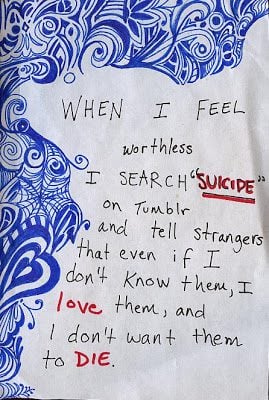 I was recently sent a preview of the film, The Cure Is … . Watching the trailer, brought to mind the pseudoscientific and therefore dangerous films, The Secret and What the Bleep Do We Know. Perhaps you have received an invitation to view this film as well. If you watch, please do so with caution.
I was recently sent a preview of the film, The Cure Is … . Watching the trailer, brought to mind the pseudoscientific and therefore dangerous films, The Secret and What the Bleep Do We Know. Perhaps you have received an invitation to view this film as well. If you watch, please do so with caution.
It is an admixture of testimonial from patients afflicted with cancer, wellness experts, with interludes of animated and nature footage on the miracle of life.
Illogic is embedded quickly into the overarching miracle narrative. Somehow because one out of 40 Million sperm eventually fertilizes the egg that you were born from, this is presented as an intentional act instead of a random occurrence. Why does that event connote specialness? Why does this designate your purpose in life? I’m sure a similar process occurs in all mammals. Would we say that each squirrel is born with a unique purpose? Each mouse. Each marmot?
The experts move from a basic and accurate description of the stress response system (science) to unsupported claims that our thoughts cause illness, that negative thinking invites disease into our lives (pseudoscience). The case is simplified and overstated.
The testimonials come from patients with cancer. A recent scientific review in the Journal of the American Medical Association (Cohen, S., Janicki-Deverts, D., & Miller, G. E. (2007). Psychological stress and disease. JAMA (298): 1685-1687) on the role of psychological stress in illness stated that:
It is generally believed that stress is more likely to influence the progression and recurrence of cancer than initial onset of the disease. Yet the critical prospective studies in this area have been largely unsupportive.
The logic of these experts leads to blaming the victim. Many, in fact most, people engage in negative thinking and have a chronically elevated stress response and remain healthy. Many loving bright people who engage in healthy lifestyles with positive thinking get disease. The JAMA article stated:
Although stressors are often associated with illness, the majority of individuals confronted with traumatic events and chronic serious problems remain disease-free.
Lifestyle factors are known to contribute large portions of the variance of health–social support, exercise, and diet, in particular. Positive thinking does not hurt either and it is one of the contributing factors to health and wellbeing–not the main and certainly not the primary causative factor as portrayed in this movie.
There seems to be nothing new in this film. The claims of the experts go awry when they invoke the law of attraction, or what William James called the “religion of healthy mindedness” over a hundred years ago.
How is it helpful to believe that you attracted cancer into your life? It’s specious reasoning after the fact to look to your internal or external milieu after a diagnosis to find you had negative thoughts or stressful circumstances. We all do. It is quite another to attribute causal power to them.
If you have a recent diagnosis of cancer, you did not “attract” it with your thoughts. This line of thinking is dangerous, stupid, and wrong. This movie and others like it exploit a vulnerability in our brains for attributing causation to things that are only correlated. It makes us a superstitious creature, prone to magical thinking.
Of course, you will feel better and be healthier if you embrace love more than fear. However, the scientific linkages between stress and illness have not been firmly established–despite decades of research.
Be positive, be optimistic, live a healthy lifestyle, love yourself and others–by all means. Don’t blame yourself if you get sick. If you do get sick, take responsibility for yourself, redouble your efforts of love and lifestyle. Don’t waste your money on this film.

